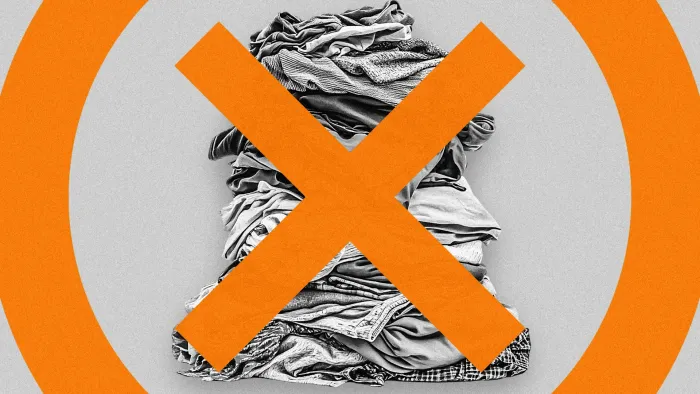
.
Image: Freepik
Could the era of the super cheap phone case arriving from China in a week finally be ending? Thanks to a major change to European regulations, it just might.
European Union finance ministers have agreed to impose customs duties on low-value parcels entering the bloc at some point next year, scrapping the long-standing “de minimis” exemption for goods under €150 (or $175). The move is seen as a way to slow the flood of cheap Chinese imports from platforms such as Shein and Temu. These goods now account for the bulk of the EU’s 4.6 billion small parcels a year, more than 90% of which came from China.
The EU’s move follows the U.S. government’s decision to destroy its own de minimis waiver for Chinese e-commerce products.
Because companies like Shein and Temu depend on shipping huge volumes of low-value parcels directly from Chinese warehouses to consumers, they will be hit hardest by the EU’s change. “It’s difficult to see how they will find an easy way around it—although given it’s coming on the heels of the U.S. doing similar, I’m sure they are already working on that,” says e-commerce expert Ben Graham.
The regulatory shift will allow e-commerce to be more competitive across all digital channels. As a result, the shift is being presented as a big win for the EU, even if it happens to follow the United States taking a similar approach to small package rules earlier this year under Donald Trump.
Yet while the moves in both countries is aimed at Shein and Temu, it could also wind up harming homegrown companies in both Europe and the U.S.“The removal of de minimis rules is reshaping global e-commerce,” says Ronald Kleijwegt, CEO at logistics platform Vinturas. “EU exporters now face tariffs on low-value items, extra customs paperwork, and higher shipping costs when selling to the U.S.”
Kleijwegt says the impact cuts both ways: “U.S. small businesses lose access to affordable European goods, while smaller EU firms lose duty-free access to the American market,” he explains.
It’s not just the infamous de minimis import duty benefit that’s in the firing line in Europe: Brussels has also floated a €2 handling fee on every low-value parcel and is pushing member states to stop undeclared packages from slipping through customs. Some individual countries, including Romania and Italy, are already introducing their own national fees while they wait for the EU-wide regime to kick in.
The question is whether Temu and Shein will face a simple hit to their margins, or an existential threat to their whole business model.Roberto Lobue, partner and retail sector expert at accountancy and business advisory firm Menzies, argues the changes will bite hard and fast. “Since the U.S. scrapped its own de minimis duty free limit, the amount of low-value items exported to the U.S. has dropped dramatically, as firms like Shein and Temu focused increasingly on the EU market,” he says. “With Europe becoming a back door for lower valued goods, the EU’s move to accelerate its own reversal next year comes as no surprise.”
For Lobue, the end of duty-free thresholds is where the Temu and Shein model starts to crack. “Once duties and handling fees apply from the first euro, prices will rise, logistics will get more complex, and Shein and Temu will need to shift to bulk imports, EU warehousing, and stricter customs compliance,” he says. “The change removes a long-criticized competitive distortion, and will likely dampen the impulse buying that fuels these platforms, as even small added fees can make a big impact.”
As prices edge up, he warns, the whole purpose of the two platforms—its ultracheap prices—gets weaker. “As their prices climb, competitors like Amazon are already moving to capture bargain-hunters, with the launch of its new ‘Haul’ feature, and others may seek to capitalize,” he says.
Julian Skelly, managing partner of retail at Publicis Sapient, thinks Temu and Shein are unlikely to be killed off. But they will have to evolve. “They’ve built impressive capabilities around direct-to-consumer logistics and demand sensing; now they’ll need to leverage those strengths differently,” he says.
The attempt to hobble the Chinese companies might not have its intended goal. “Platforms built on ultra-low-value cross-border shipping are under similar pressure,” says Kleijwegt. Both Temu and Shein explored appointing U.S.-based entities or distributors to manage domestic clearance and distribution, but that adds cost and complexity to their operations, he adds.
Kleijwegt points out that the turbulence also exposes a bigger systems problem.
“Businesses need systems that can adapt quickly, share information securely, and provide visibility across borders as trade tensions and new rules mount,” he says. “Stronger connectivity reduces compliance friction, enables companies to respond faster to regulatory change, cuts complexity, and builds the resilience needed to compete in an unpredictable trade environment. This can make the difference between staying competitive in international markets and being shut out.”
ABOUT THE AUTHOR
Chris Stokel-Walker is a contributing writer at Fast Company who focuses on the tech sector and its impact on our daily lives—online and offline. He has explored how the WordPress drama has implications for the wider web, how AI web crawlers are pushing sites offline, as well as stories about ordinary people doing incredible things, such as the German teen who set up a MySpace clone with more than a million users.
FAST COMPANY
